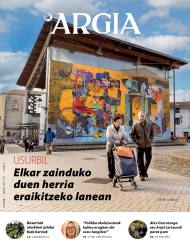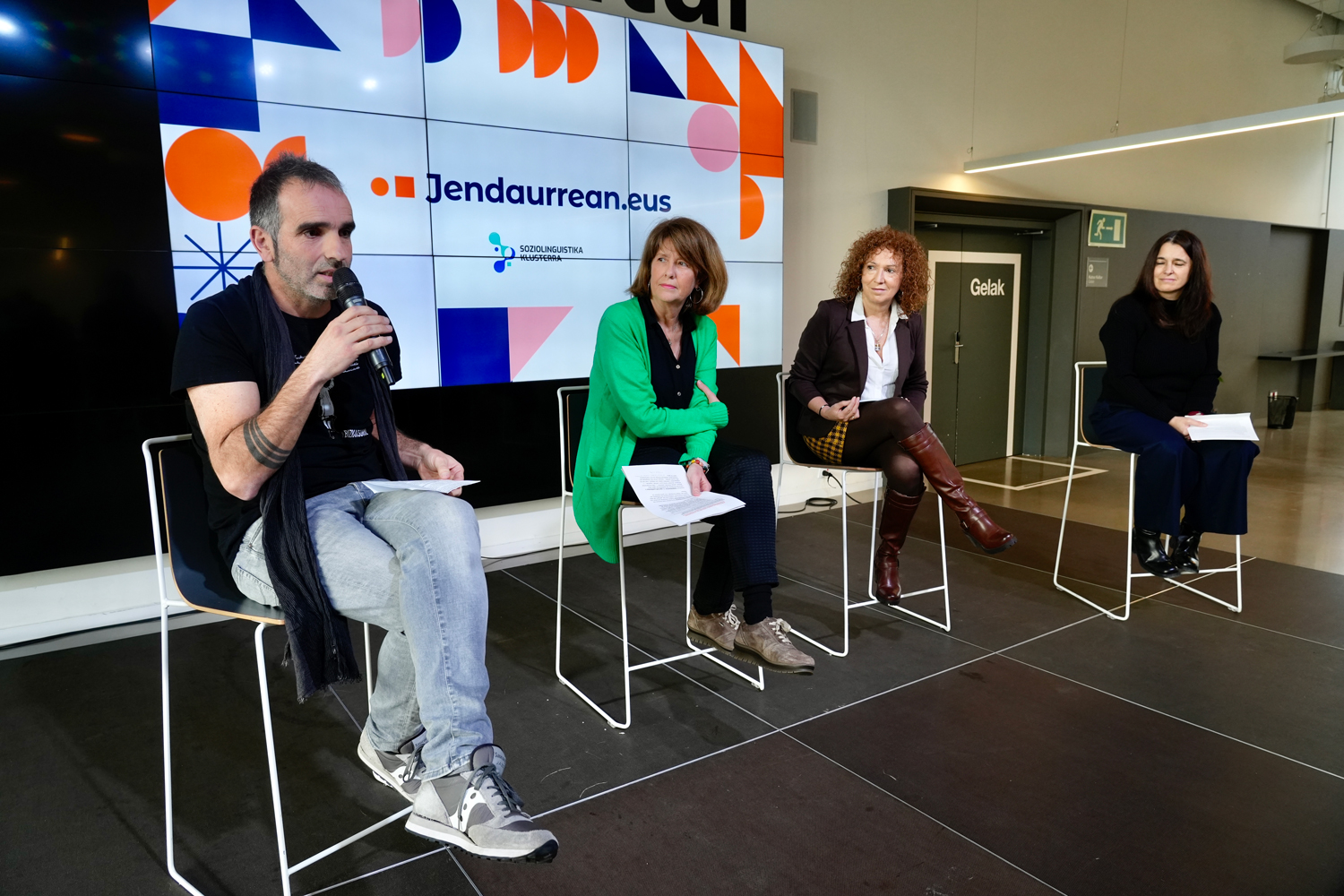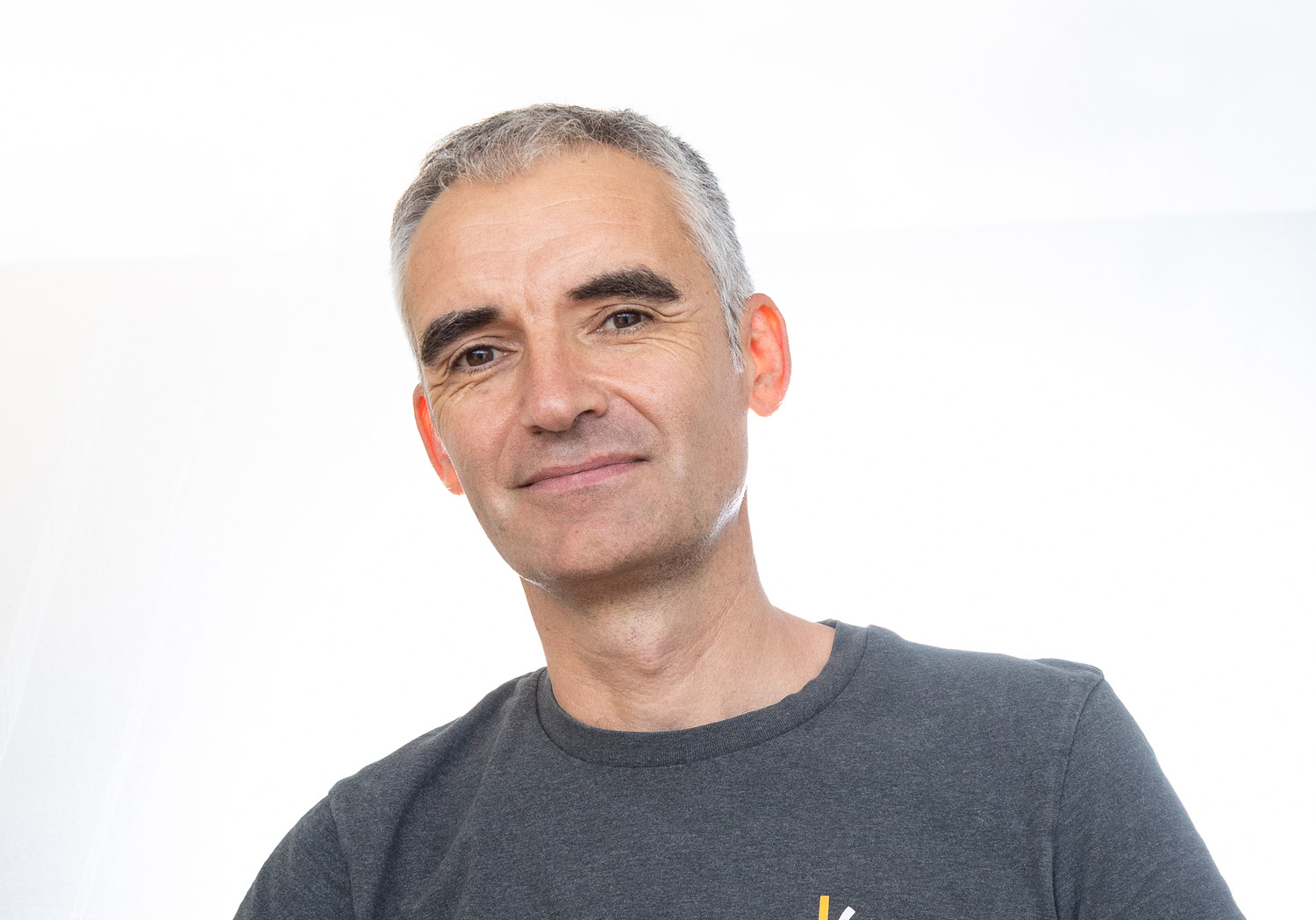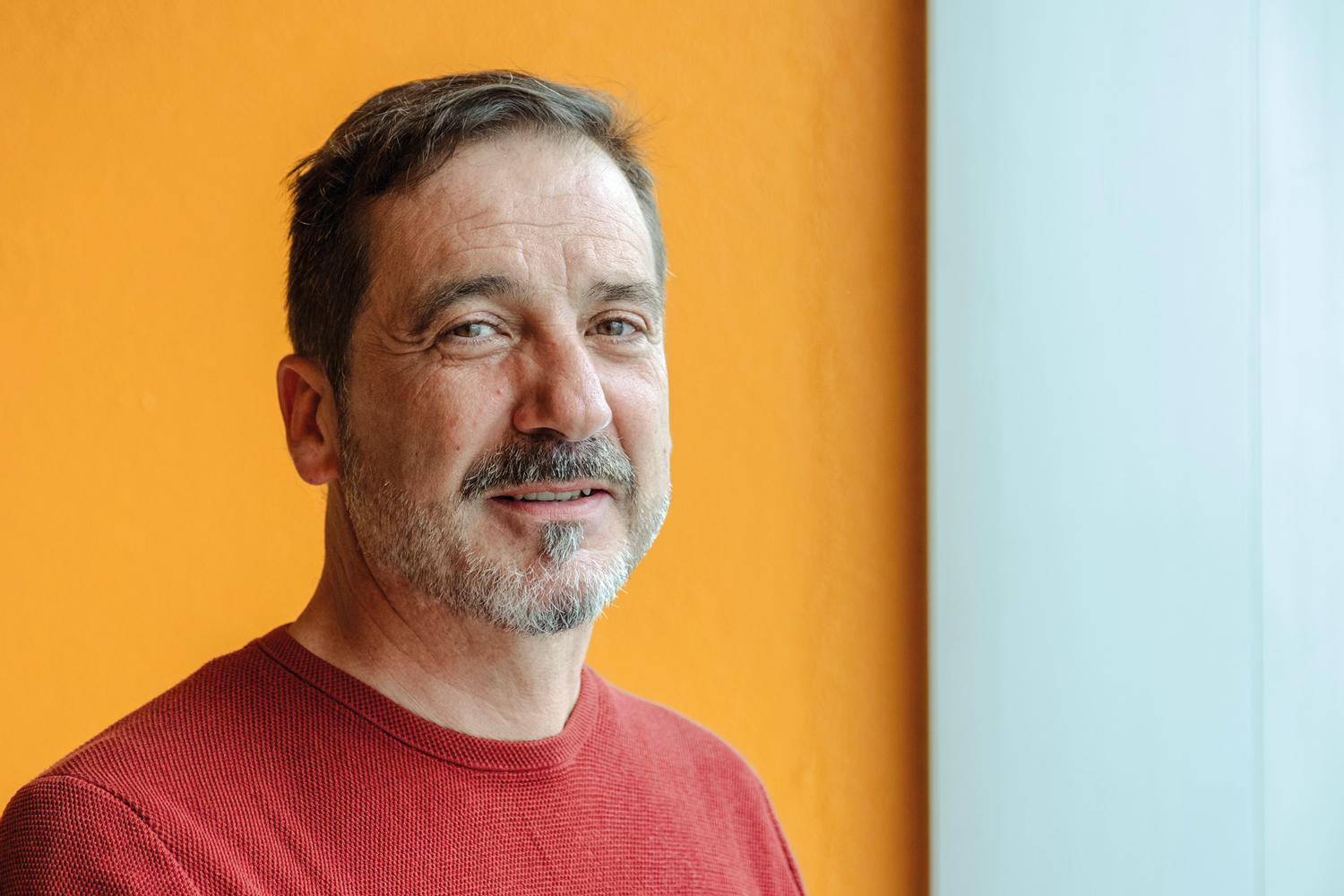Small steps to approach the Basque in Lekeitio
- They are usually present in all sauces and gartziatarras have not drawn the challenge proposed by the Ikastola de Lekeitio. Ukrainian Alina Diadoma has taken advantage of this provision to take on the challenge of living a week in an Basque family. In view of the good response of students and families, a similar initiative will be repeated in the spring.
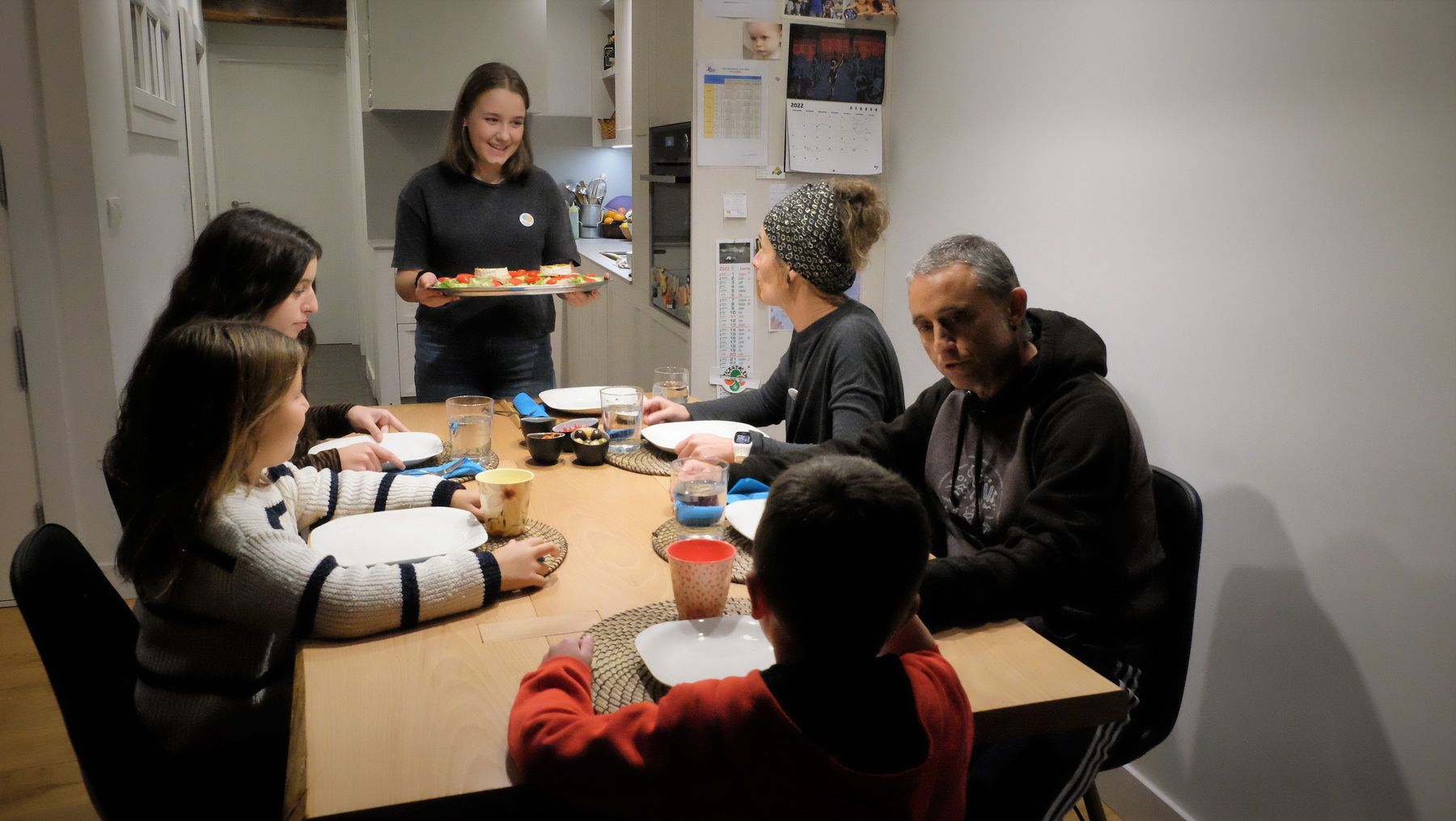
Salad prepared in the house of the Espeja Gartzia family, but today in the round table six people gather. Alina Diadoma is the guest this week. Extend your stay for a week at the family home of the Ikastola Azkue of Lekeitio. The only objective: to take a practical step towards living in Basque.
Today is the third day for Diadoma in the house of the Gartziak de Espeja. The nerves of the first day are quieter and the Ukrainian is at ease. He has explained that he feels closer and daring to the Basque. Leaving aside the shame and with the little ones in the house he has already spoken in Basque.
At the time of dinner the accounts of the day have been mentioned, one in multisport has been in the pool, the incidences of rowing training; the other has become a complicated team project, the need to check the car, the review of the purchases at home... the smaller ones are also happy. From time to time they receive the warning from their parents, “slower, in the way they understand Alina.” But no word in Spanish. Sometimes slower, often with mime, sometimes using the list of examples, they get Alina to join the dinner conversation.
It has been common to spend time in foreign families to learn English, French or German. In Euskal Herria there are also exchanges with students from less Euskaldunes. But on this occasion, the Euskara behar dut campaign was launched at the ikastola Azkue in Lekeitio, and the students of the erdaldunes families of the ikastola have been immersed in the Basque families for a week. The Commission of the Basque Country of the ikastola has worked this campaign as a challenge and an experiment in the hope of promoting the use of the Basque Country in the ikastola and that it is noted in the use of the people.
Alina Diadoma has spent a week at the home of her classmate, Irati Espeja. “A year and a half ago I came from Ukraine to Lekeitio and at first it seemed a very difficult language, but here I need to make life,” he explains. Today he understands the language, but he still lacks the ability to speak. “It takes very little to start talking,” says Joxe Gartzia, “at home we are talking only about Euskera and we understand each other without problems.” After dinner they picked up the table and took a space to
play the tables. Any excuse is good for shaking your tongue. Coexistence has been easy and beautiful. “Alina has facilitated everything and from the beginning has participated in all the tasks of the house, in this sense it has been another of the family”, says Igotz Espeja. You have noticed that Ukraine and Euskal Herria, although not far away, are different cultures. Diadoma has not wanted to change anything in the daily life of the family, but “I am 16 years old and I am much older to adapt to Irati’s new family habits,” he explains.
.jpg)
The need for the Basque in the ikastola, in volleyball, in shopping… I need the Basque in Lekeitio. Every time I walk, I hear the Basque and often notice my impotence,” says Diadoma. It recognizes that the process is laborious and abrupt, but that it is gradually being done. In her house she confesses that her young sister has also made her first words in Basque and tells her mother also good days in Basque. “It’s also easier for me at Irati’s house to talk to the little ones
in Basque, perhaps because I know that the only way to communicate with them is the Basque,” he added. He says that these days there are also times when his head is about to explode, but he is generally happy.
Gartzia knows the learning process of Euskera in adolescence at home. Because he also chose to learn Basque at the same time. “Interest is what it takes to learn a language, if a person has a real interest they will learn it sooner or later, but they will learn it and if Alina has that interest. This is like learning to ride a bicycle, it costs at first, you fall, but from one day to the next you learn and in the end you can walk comfortably on the bike,” says García. “I am sure that in a year’s time I will speak in Basque to Alina on the street, and Alina will answer me in Basque,” he added.
At the end of this week, in addition to the facilities for mastering and using language, Espejo believes that this project also affects the neighbors. If one person has chosen to learn the language, the others will also approach in Basque. Consequently, “the Spanish jump made more easily will cost others more”. From the beginning of the campaign of the Ikastola, in the house of the carnivals who committed to making the Basque the Basque language the Basque language as a support, “and we hope it will be maintained for a long time,” says García. Irati Espeja, a classmate of Alina, has noticed the change in the classroom, “now they approach Alina in Basque,” he says. The families and students of Azkue Ikastola are choosing to bring the Basque to anyone who wants to learn Basque consciously.
Alina is eager to repeat the experience. “I would return to Irati’s house at ease,” he says in smiles. Family members have joined the project and arranged a dinner for the end of the week. One week is very little to master a language, but García believes that with this stay it will serve him not only to acquire the linguistic skills, but also to see that the Basque country has life outside the ikastola. In other words, in daily life one can see that Euskera serves to live.

Like Alina in spring, five EP and ESO students have participated in this new challenge launched by Azkue. In this first experiment, like Igotz, Joxe, Irati, Aratz
and Ani, four more families participated in the initiative promoted by the Euskera Commission of the ikastola. In addition, all the classrooms have worked around Euskera, each to its extent and form, but all those over the age of 3 have talked about the language.
.In view of the response of students and families, ikastola will conduct a new campaign in spring. Espeja reports that after the implementation of the project many parents have approached them. “The project has aroused interest in the people, the answer is being good and in the ikastola there is also a change of attitude, this opportunity cannot be missed,” he added.
Plazara, AEK, Uda Leku, Dindaia eta Ebete antolakundeak Baionan elkartu dira Famili'on egonaldi ibiltariaren lehen edizioa aurkezteko. Hizkuntza mailaren arabera eskaintza bat edo beste egongo da eta haur zein gurasoentzat izango da udaberrian.
I think it will have to do with the hangover of the profession, but I have to acknowledge that I look at the linguistic landscape of the places I visit. Signs that stick on the walls, hanging from streetlights, billboards, and supports that appear in shops or companies (signs,... [+]









